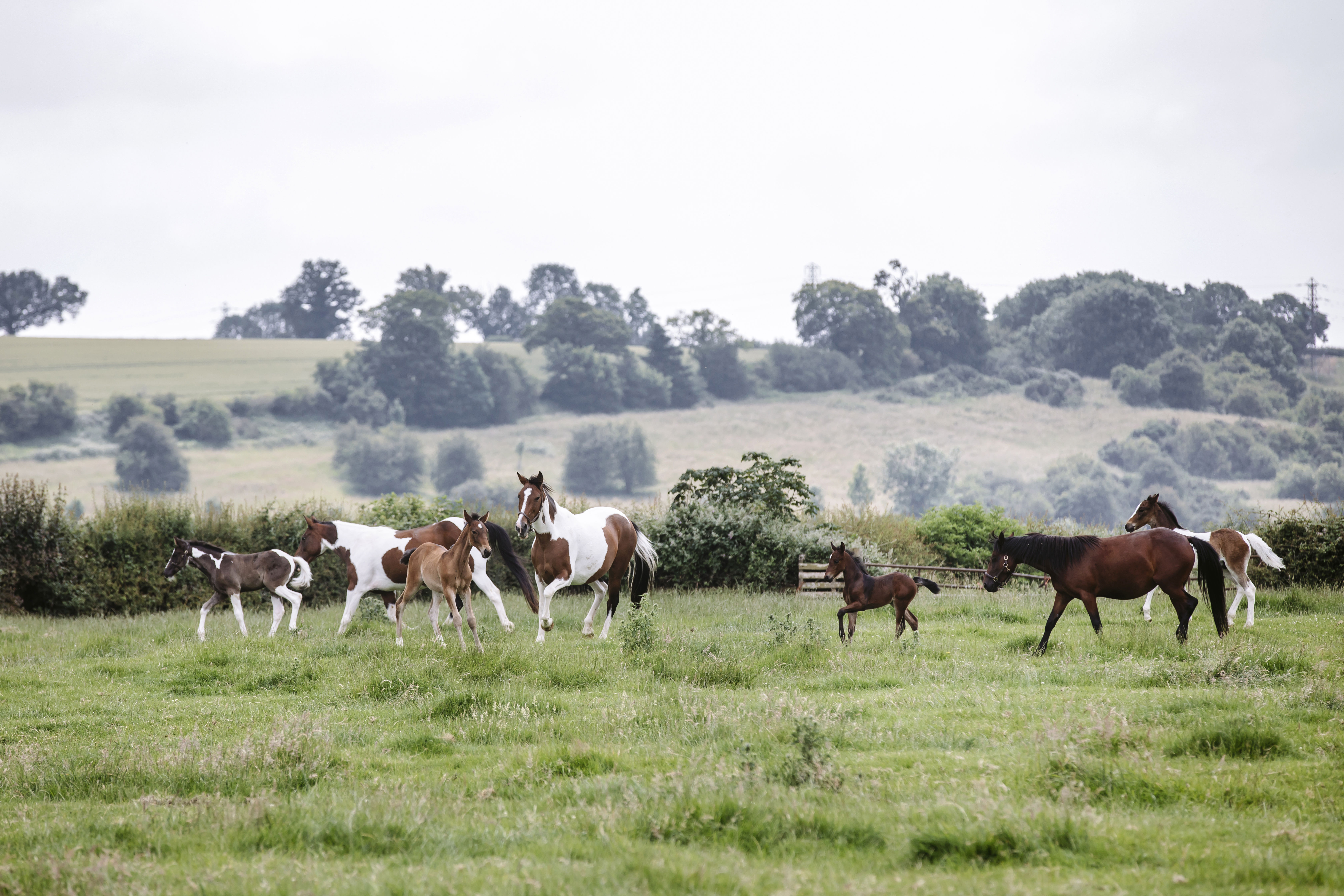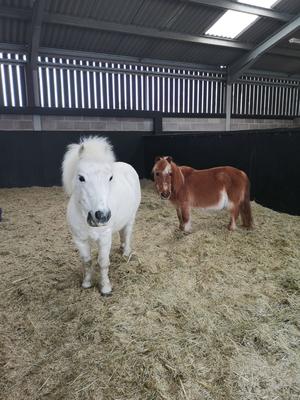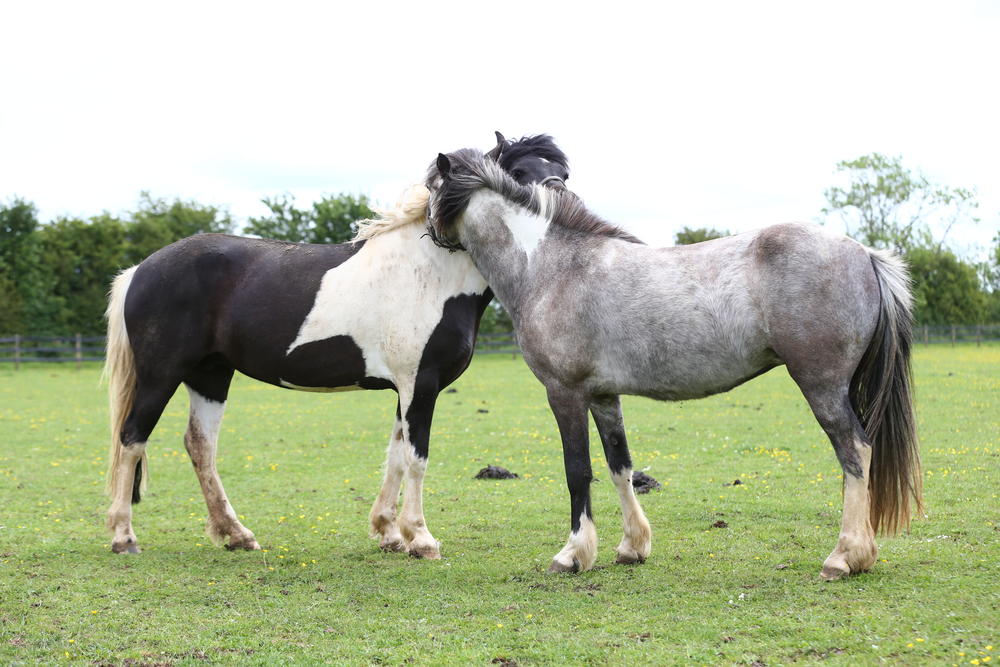
What horses need and their natural behaviour
Although horses and ponies have been domesticated, their needs are very similar to when they were wild. By understanding how horses would behave naturally you can make sure that your horse or pony is as happy and healthy as possible in your care.
Horses have been evolving for over 55 million years and have only been domesticated for the last 4,000 to 6,000 years. In evolutionary terms, this is a relatively short time so they still have many of the traits that their wild ancestors would have had. But as riding horses and our companions we often expect them to live differently from what they inherently need.
Where to keep your horse
In a horse’s natural setting they would live in family groups made up of a stallion (an unneutered male horse), several mares (unneutered female horses) and their offspring. They can also live in bachelor (male) groups which include colts (young males) or stallions that do not currently have mares.
Horses prefer open spaces like a field or paddock. When horses are kept confined in small spaces, such as a stable stall, they can suffer from ‘rebound’. This occurs after a period of time with little or no movement. When your horse can move again, they will show flight-like behaviours such as cantering around, bucking and rearing. If they cannot graze, they can also develop more biting behaviours.
Group housing, like a barn or outdoors with a sheltered area, will mean horses can be kept in a bigger space together. These types of confined areas still allow horses to perform social activities like eating, drinking and grooming each other.
Introducing a horse to a new area
If you want to exercise a horse in a new area, it’s important that they feel safe. Introducing them to the area should be done slowly over time and in a relaxed way. Ideally it should be done with another horse friend to enable them to have positive associations to where you will later expect training, handling or riding to take place.
How horses socialise
Horses and ponies are very social animals. If horses need to be confined to a small area, eg because they have an injury, a companion horse can help them feel more comfortable. Horses that are kept on their own in confinement have been shown to have higher cortisol levels (a hormone that is produced when stressed). Studies have shown that stables where horses can see through and touch noses showed lower levels of the stress hormone.
Areas where they can socialise, touch and perform acts like ‘mutual grooming’ will help horses feel more comfortable and less stressed. Grooming is not only good for their coats but it’s also good for building their bonds with their friends.
How horses eat
In the wild, horses and ponies would graze between 14 to 18 hours a day. It's important that you feed your horse in a way that mirrors how they would eat naturally as this is how their digestive system works. Gastric acid is constantly being produced and secreted into their stomachs so if they go for too long without food this can cause ulcers in their stomach.
They also prefer to eat and drink close to or within eyesight of another horse. This is because they have evolved in open grasslands where groups of horses would watch for predators.
Find out more about what horses should eat.
How horses sleep
Adult horses and ponies require between two to five hours of sleep a day.
- Slow wave sleep (dozing) can be done standing up or lying down
- REM (rapid eye movement) sleep, where they lie completely flat, only requires 30 minutes. This is taken in small doses over a 24 hour period.
As a prey animal, sleep can leave them vulnerable when lying down because they can’t run away as quickly. They would always prefer to have at least one lookout horse watching for threats. Horses that cannot get full REM sleep can suffer from sleep deprivation so having those lookouts is vital for horses.
How horses exercise
Horses need to move! When grazing they eat around their front foot. They’ll then step forward and graze around the next front foot. Therefore, eating and movement go hand in hand. In nature, horses would travel up to 30km a day when grazing and finding grass and water.
Horses also run and play with their other herd members. Females normally play from when they are a foal until they reach maturity, but males usually play throughout their lives. Making sure they have opportunity to display these behaviours is important for socialising, developing and learning.
Enrichment for horses
You should also provide areas of enrichment for horses. This could be:
- areas of different herbs for them to smell
- objects they can scratch on
- wood to chew on – bark makes up to 10 per cent of their foraging diet
- having different surfaces and heights to investigate
- safe, new objects can be great for them to explore and learn about
More horse enrichment activities.
Breeding horses
In nature, both male and female horses want to reproduce. Horses will still want to breed even if they’re domesticated so most male horses are gelded (castrated). Most geldings can then live well with mares. If male horses are not gelded, then owners should keep them separated to avoid unwanted pregnancies.
Mares usually have seasons from March or April until September or October.
Veterinary and other care
Although horses have not always had access to this, it’s important that they are given the proper care, such as a vet or a farrier, when needed. This will ensure that your horse has regular check-ups, and the correct care and treatment to live a happy and healthy life.






